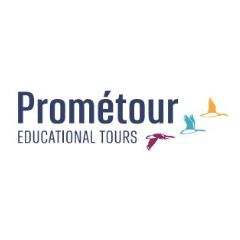Are you ready to test your students’ language skills in the real world?
For foreign language teachers, educational travel is one of the most exciting prospects available to them and their students. Foreign language teachers have an innate interest in other countries, other languages and other cultures. They’ve often traveled extensively themselves and already know the myriad benefits of travel. They trumpet the importance of learning a foreign language because they know its practical implications as well as the way fluency in a foreign language literally opens up a whole new world of literature, philosophy and culture.
But there’s only so much you can do with vocabulary quizzes, music and films, role-playing and skits. At some point, foreign language teachers are often eager to introduce their students to conversation with native speakers, in a natural setting.
Educational student trips are ripe with opportunities for that! Here are some of the exciting, real-life opportunities students will have to use their foreign language skills on tour:
- Asking for directions.
- Ordering from a restaurant menu.
- Listening to a native tour guide.
- Bartering at a market.
- Buying souvenirs.
- Conversing with their native tour director.
- Chatting with local students over lunch.
- Taking a class at a local high school.
- Staying with a host family.
- Purchasing tickets.
- Reading maps.
- Attending a play.
- Picking up a local newspaper or magazine.
- Buying a snack from a street vendor.
- Participating with locals in a community service program.
- Reading billboards and street signs.
Practicing a foreign language in real-life situations with native speakers is exciting and motivates students to push through their comfort zones, struggling to understand and to make themselves understood. They’ll internalize new vocabulary more quickly and efficiently, and they’ll more easily pick up on the natural intonations and rhythms of a language. Traveling to a foreign country gives context to learning a foreign language.
If these learning experiences appeal to you, it’s time to consider educational travel. A customized student trip can provide you and your students with all the practical language-learning opportunities that will make all the difference in solidifying what your students have already learned and in motivating them to continue their language studies.
In fact, offering a trip to your students halfway through or near the end of their participation in your school’s foreign language program can be a great reward for all their efforts. Many foreign language teachers agree that the prospect of an educational tour is what motivates their students to sign up for their classes and to continue working on their language skills after they get back, in university and beyond.
What language-learning opportunities abroad can you dream up for your students?




